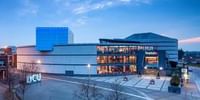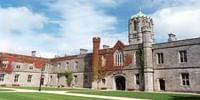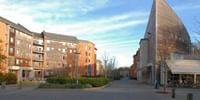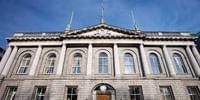- In this programme (which is unique in the country), students will learn how to measure and image the physiological activity of the human body and provide diagnostic information to medical staff.
- As well as learning through traditional lectures, students will gain extensive practical experience, including placement in a hospital. It’s not necessary to have studied physics before entry.
- In the first two years, learn about the physiology, anatomy and biochemistry of the body and the use of technology in providing a diagnosis.
- spend third and some of the fourth year on hospital placement to learn how to apply their training and knowledge in a clinical setting, and undertake a hospital-based research project in the fourth year.
- Subjects covered include Medical Instrumentation, Computer Applications, Imaging, Pharmacology, Physiological Biochemistry, and Human Physiology & Anatomy.
- In Year 4, study two of the following disciplines: Cardiology, Respiratory Measurements, Vascular Technology, and Neurophysiological Studies.
- To undertake the hospital placement, students must complete a health screening and vaccination programme, the nature of which may change depending on the requirements of the health service. This service will be provided by our Student Health services (there may be a cost associated with this.
Bachelor of Science [B.S] (Clinical Measurement Science)
4 years
Honours
English
Field of Study:
€5,423/Yr
€5,423 /Yr
Important Dates
| Event | End Date |
| Application Deadline | Jun 30, 2023 |
Fees & Funding
Tution & Application Fees
| Year | Year 1 | Year 2 | Year 3 | Year 4 | Year 5 |
| Tuition Fees | €5423 | €5423 | €5423 | €5423 | €5423 |
| Total Fees | €5423 | €5423 | €5423 | €5423 | €5423 |
Living Costs
| Head | Avg Cost Per Year |
| living expense | €14539 |
Eligibility & Entry Requirement
Academic Eligibility:
- Maths and English with a minimum grade 06/h7
- Students are required to submit their English Proficiency Scores.
Indian Eligibility:
- Students are required to submit their 12-grade transcript under the first division from the recognized institution.
TU Dublin requires students to submit their IELTS and TOEFL scores.
Scores Required
Career and Placement after Course
Clinical Measurement Scientist, Researcher. Employment rates have been excellent to date. Most graduates find employment in the health service in Ireland. There are also employment opportunities in the field of medical equipment.
Ask your question
Similar Colleges You Might Be Interested In
- Similar Colleges
No Ratings Found!!
Follow
No Ratings Found!!
Follow
No Ratings Found!!
Follow
No Ratings Found!!
Follow
No Ratings Found!!
Follow
No Ratings Found!!
Follow
No Ratings Found!!
Follow
No Ratings Found!!
Follow














